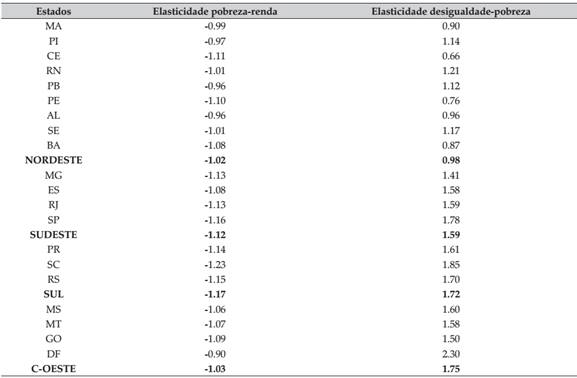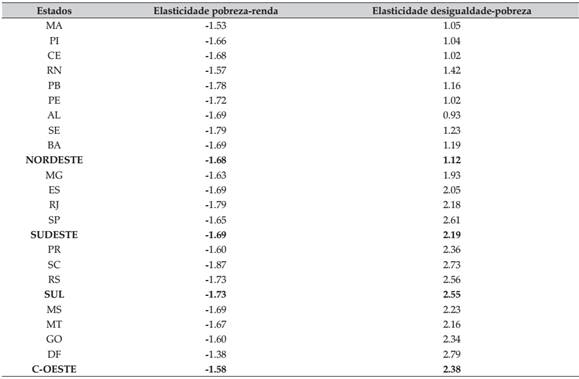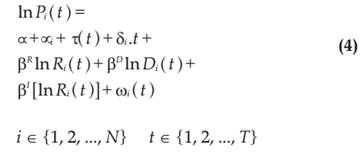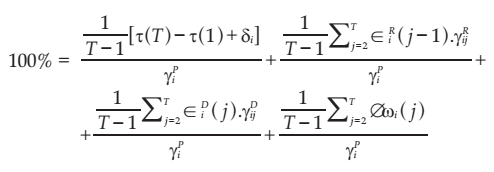Abstract:
Basing on theories that seek to relate poverty, inequality and economic growth, the aim of this study is to decompose the variation of poverty through the following factors: trend effect, growth effect, inequality effect and residual effect of the Brazilian states between 2001 and 2012. It starts from the estimation of a statistics model with data in a panel, using the following variables: poverty, household income, per capita and the Gini index, extracted from PNAD. On this methodology is valid to point that the trend effect is a distinction, once it was not used yet in decomposition to rural area, but just for urban zone. Concerning about the aspect of poverty reduction, the results found show that, in most part of states, the growth effect excelled over the others during the analyzed period. Nevertheless, the distribution effect also had its importance in the process, followed by the trend effect. However, the residual effect had little relevance.
Key-words:
Decomposition; Poverty; Inequality; Economic growth

 Thumbnail
Thumbnail
 Thumbnail
Thumbnail
 Thumbnail
Thumbnail
 Thumbnail
Thumbnail
 Thumbnail
Thumbnail
 Thumbnail
Thumbnail
 Thumbnail
Thumbnail
 Thumbnail
Thumbnail
 Thumbnail
Thumbnail
 Thumbnail
Thumbnail
 Thumbnail
Thumbnail
 Thumbnail
Thumbnail
 Thumbnail
Thumbnail
 Thumbnail
Thumbnail
 Thumbnail
Thumbnail
 Thumbnail
Thumbnail
 Thumbnail
Thumbnail
 Thumbnail
Thumbnail
 Thumbnail
Thumbnail
 Thumbnail
Thumbnail
 Thumbnail
Thumbnail
 Thumbnail
Thumbnail
 Thumbnail
Thumbnail
 Thumbnail
Thumbnail
 Thumbnail
Thumbnail
 Thumbnail
Thumbnail
 Thumbnail
Thumbnail
































